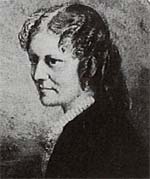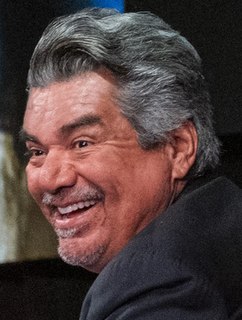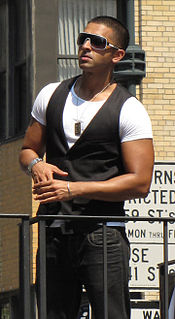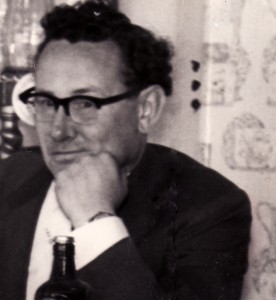A Quote by Carl Jung
I feel very strongly that I am under the influence of things or questions which were left incomplete and unanswered by my parents and grandparents and more distant ancestors. It often seems as if there were an impersonal karma within a family which is passed on from parents to children. It has always seemed to me that I had to answer questions which fate had posed to my forefathers, and which had not yet been answered, or as if I had to complete, or perhaps continue, things which previous ages had left unfinished.
Quote Topics
Ages
Always
Am
Ancestors
Answer
Answered
Been
Children
Complete
Continue
Distant
Family
Fate
Feel
Forefathers
Grandparents
Had
Impersonal
Incomplete
Influence
Karma
Left
Me
More
Often
Parents
Parents And Grandparents
Passed
Perhaps
Previous
Questions
Seemed
Seems
Strongly
Things
Unanswered
Unfinished
Very
Very Strong
Were
Which
Within
Related Quotes
...I had to point at Hanna. But the finger I pointed at her turned back to me. I had loved her. I tried to tell myself that I had known nothing of what she had done when I chose her. I tried to talk myself into the state of innocence in which children love their parents. But love of our parents is the only love for which we are not responsible. ...And perhaps we are responsible even for the love we feel for our parents.
My parents never referenced Ethiopia that much, largely because of the circumstances under which we left. We left during a time of political upheaval, and there was a lot of loss that came with that, so my parents were reluctant to talk about those things. So I had, by and large, an American childhood.
This clarity made me able to behave normally, which posed some interesting questions. Was everybody seeing this stuff and acting as though they weren't? Was insanity just a matter of dropping the act? If some people didn't see these things, what was the matter with them? Were they blind or something? These questions had me unsettled.
Perhaps he had to be close in order to keep a reason for the things he did. To make the things he did be themselves Life. And not merely a delightful exercise of technical skill which man had been able to achieve because he, of all the animals, had a fine thumb. Which is nonsense, for whatever you live is Life.
He could remember all about it now; the pitiful figure he must have cut; the absurd way in which he had gone and done the very thing he had so often agreed with himself in thinking would be the most foolish thing in the world; and had met with exactly the consequences which, in these wise moods, he had always foretold were certain to follow, if he ever did make such a fool of himself.
I saw a delicate flower had grown up two feet high
between the horses' feet and the wheel-track.
Which Dakin's and Maynard's wagons had
Passed over many a time.
An inch more to the right or left had sealed its fate,
Or an inch higher. Yet it lived and flourished,
As much as if it had a thousand acres
Of untrodden space around it, and never
Knew the danger it incurred.
It did not borrow trouble, nor invite an
Evil fate by apprehending it.
I was remembering the things we had done together, the times we had had. It would have been pleasant to preserve that comradeship in the days that came after. Pleasant, but alas, impossible. That which had brought us together had gone, and now our paths diverged, according to our natures and needs. We would meet again, from time to time, but always a little more as strangers; until perhaps at last, as old men with only memories left, we could sit together and try to share them.
Keats mourned that the rainbow, which as a boy had been for him a magic thing, had lost its glory because the physicists had found it resulted merely from the refraction of the sunlight by the raindrops. Yet knowledge of its causation could not spoil the rainbow for me. I am sure that it is not given to man to be omniscient. There will always be something left to know, something to excite the imagination of the poet and those attuned to the great world in which they live (p. 64)





































